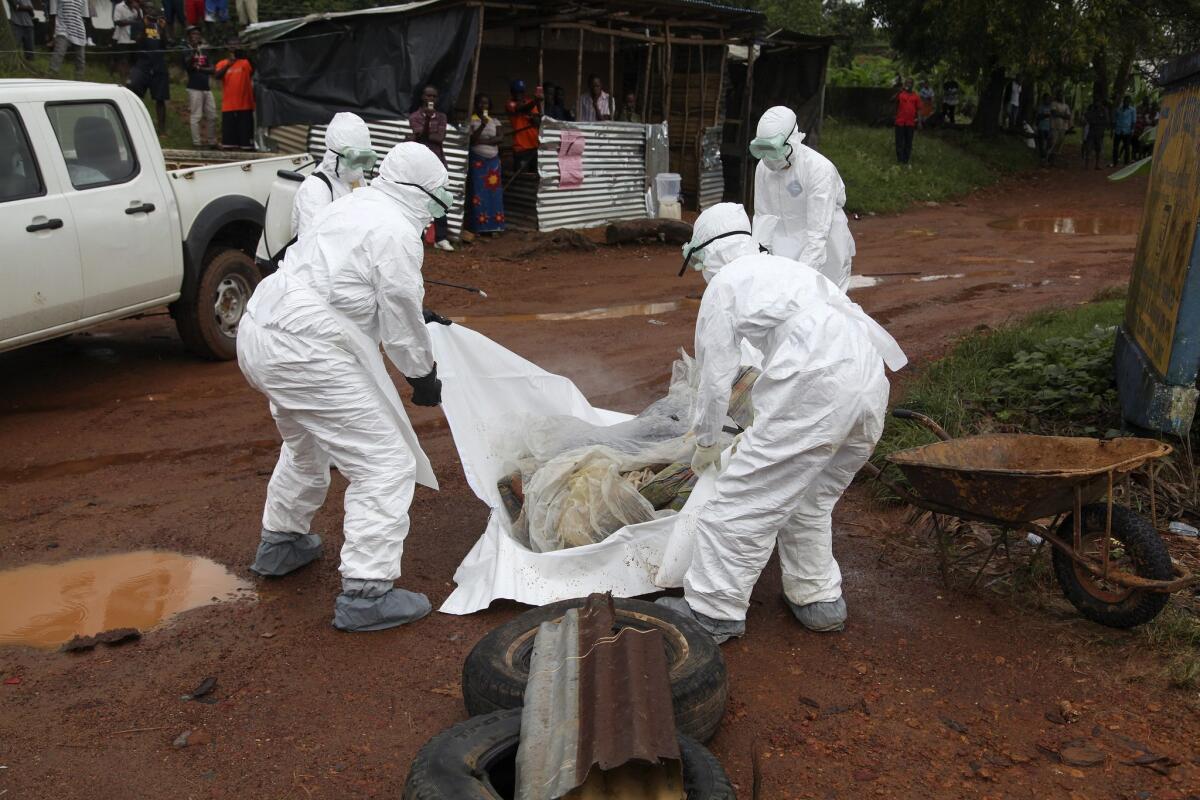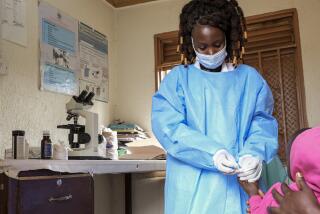WHO says it is ethical to use experimental drugs to fight Ebola virus

- Share via
A World Health Organization panel advised Tuesday that it was ethical to use experimental, nonapproved drugs to combat the ongoing Ebola virus epidemic in West Africa.
“There was unanimous agreement among the experts that in the special circumstances of this Ebola outbreak, it is ethical,” said Dr. Marie-Paule Kieny, assistant director general of the United Nations health agency.
While past outbreaks of Ebola virus had been successfully contained using traditional methods of public health management, this recent outbreak is unlike anything that has come before, Kieny said. To date, 1,013 have died in the outbreak.
Kieny told reporters at a telephone press conference from Geneva that a panel of experts would meet at the end of this month to review what experimental treatments were available and which had shown the greatest promise following animal experiments.
However, she said the organization would not oversee or prioritize which nations or which patients received the drugs. Instead, it would provide details to those governments or groups that sought information on drug availability.
“We do not get involved in the discussion of who should get what drug at what moment,” Kieny said. “We can serve as a broker ... but only by facilitating contacts and not making any choices.”
The issue of experimental Ebola virus drugs burst onto the world spotlight recently when two American medical aid workers who contracted the disease in Liberia were given the experimental drug ZMapp. The drug had never before been given to humans and only three doses were available.
The condition of the aid workers has been improving since they were evacuated to the United States and admitted to the special containment ward of Emory University Hospital.
Kieny said that while it would take time for more doses of ZMapp to be produced -- the active ingredients of the drug are grown in tobacco leaves -- there were stocks of other experimental drugs available.
These include blood-derived medications that are intended to be given to people already infected with the disease, and vaccines, which must be given before a patient is exposed to the virus.
Kieny said the drugs under consideration included three anti-viral medications and two vaccines. She declined to name them.
“I’m not here to make any commercial for any company,” Kieny said.
The lack of approved Ebola virus medications is a result of market forces, Kieny said.
Although the virus was first idenfied four decades ago, there has been little incentive for corporations to develop a cure. Recently however, governments began investing in research, due largely to fears that the virus could be used as a form of bio-terrorism.
“This is typically a disease of poor people in poor countries where there is no market,” Kieny said. “If it hadn’t been for the investment of a few governments in the development of a vaccine, we would have been nowhere.”
Follow @montemorin for science news







